First things first: while I promise not to turn this space into a shameless promotional machine, we’re about a month out from pub date, and I’d be remiss, while I have your attention, not to include pre-order links for my forthcoming memoir Trauma Plot and the reissue of my first book, how to be a good girl. I’ve busted my ass and am wildly proud of this work, and every morning I pray I’ll be able to go on writing more books. Maybe one of these days I’ll even write a happy one! A successful pre-order period is one of the best ways to show my publishers I’m an artist they should—nay, must!—continue to believe and invest in. I’ll also point out that pre-orders through McNally Jackson will be signed :)
Ok. I’ve checked that little box.
Because I’m stretched insanely thin with interviews and podcasts and freelance writing, I thought I might write something brief about the recording sessions for the audio book of Trauma Plot, which I completed yesterday and which was an unmooring and difficult—but also quite moving and wondrous—experience.
When we sold the book in November of 2022—my god, has it been that long?—my agent and I fought for my right to narrate Trauma Plot, should Pantheon/Penguin Random House move forward with an audio version. There were a number of reasons for this: one, of course, was money, and earning the additional fee for the recording is a godsend at present, in this convalescent three-month-period where I’ve lost my bar income entirely.
Crucially, though, I couldn’t imagine a world where some other woman performed this book about my rapes, no matter how skilled or empathetic the performance. Maybe there’s something in there to work through with my therapist—my feeling of emerald-eyed possessiveness over the worst things that ever happened to me. Helen (as she’s called in the book) and I have spoken a great deal about the alienation and exile I’m facing as I allow these histories to pass into the vast world. A book, once it’s out, is functionally not your own; its readers take the reins. Anyone can do anything with it at all.
But it’s something to do, too, with the fact that I needed it to be my voice offering this account that is so much about voicelessness, silence, and the desperate search for recognition. A search for story, for sense. An attempt to render something that is so often thought of as unspeakable, spoken. The Ovidian myth of Philomela surfaces several times in Trauma Plot. I’ve long been haunted by the soundless abyss of Philomela’s mouth. Her rapist, Tereus, cuts her tongue out to ensure she cannot testify to the fact of her violation. At the end of the tale, the gods transform Philomela into a nightingale, a bird that, famously, is mute among the females. Anyhow, it felt urgent that it be my body, my voice, my breath that grounded this telling. I wanted people to hear me.
(I also had a sneaking suspicion that any performer who took the job would play it straight, and I actually think, all things considered, that the book’s quite funny. I have a really sharp-tongued sense of humor about My Traumas. I didn’t want the book to lose its dark comedy, to come off emotionally flat or too maudlin. I’ve never yearned for anyone’s pity. I’m a tough fucking cookie.)
I don’t know what I expected from the recording process. I’ve performed sections of the book for live audiences across two years and dozens of occasions by now, and feel comfortable and confident with the writing and my ability to embody it publicly. I’m a mood killer at readings, sure, but the work always connects, which is really the best an artist can hope for. I suppose I thought it would be sort of a breeze, and in a way it was—my director and sound engineer both said I was a real natural, and after an early snafu with scheduling on the first day, I plowed through the book ahead of pace. I should say here I write out loud. I have to hear the way the sentences sound as they emerge from me. Maybe it’s my vestigial poet-brain; maybe it’s egomania; maybe it’s the dream I abandoned in college of becoming an actress.
But the work was tough. In a physical sense, it’s shockingly draining. First, I had to schlep from Queens up to 53rd and 10th in the city. I’ve literally never worked a straight job, so being on the train during the morning rush and keeping Office Siren hours is something my body just isn’t accustomed to. I’m a morning glory—I’m almost always up by 7—but my mornings are sacred to me, languorous and quiet. I like to take Olive on a long walk, do yoga, have a slow breakfast. It was hard to leave her at home all day, even if she’s sort of used to me being gone longer hours on bar shifts. She seemed disoriented by it too.
That was just getting to the studio. You’d be surprised how taxing it is to sit upright in a chair and read from a book you’ve already written for eight hours each day. Back muscles I didn’t even know were there are tensed and aching even this evening. Himalayan salt baths each night helped, but by the third day, my body was wrecked and my voice, too, was pretty scratchy, pretty fried. I’m curious to hear how much raspier I am in the fourth chapter as compared to the first. My Bea Arthur voice. The other trouble was that, at this point in the post-op healing process, I’m still dilating three times a day, which meant rushing to do one before I left the house and then stuffing two in after getting home around 6 and before bed around 1030.
I feel really blessed to have ended up at the Power Station—a historic recording studio that mainly serves musicians. My engineer, Sully, said the day rates are astronomical—he really doesn’t dealt with audio books because publishers can get away with a much more bare bones (and cheaper) setup. The room I was in is where Madonna did Like a Virgin with Nile Rodgers; Bowie did Let’s Dance with him there, too. (I also got the scoop on a band I love that just laid down a new record in the room with Sully, but I can’t share that news yet. Hopefully one day!) I was worried about being passed around among engineers in the four days I recorded, and of course I was kind of wary at first of having a man at the board during the sessions, but I had Sully the whole time and he was just brilliant—a really thoughtful and kind person, a super fun and funny music whiz. We ate lunch together each day and traded soundtracks and band gossip. He and my director, Joan, immediately set me at ease.
I felt incredibly safe and attended to, which was really necessary, as the recording ended up being deeply emotional for me. I don’t know why I wasn’t expecting this. Maybe I thought I was past the feeling—when I finished the manuscript, I didn’t even cry, which is funny, because I cry over everything. Something about being in the booth, with the dim lights and the sonic insulation, and the microphone and the iPad with my words on it being about all I could really see, and only the sound of my voice overwhelming my senses. I felt cocooned in the book, I think, which meant also being enmeshed in those events again.
There was an immediacy to my words that perhaps had gained some little distance during the writing of them—for writing Trauma Plot was such a long, intense process and so often analytical, recollected, laborious. Much of the book insists on this labor, in both form and content—insists on women’s deliberateness in our crafting of “confessional” writing. But because I didn’t have to think about the words as I read them this time, maybe it became a sort of Pure or Total Experience. I relived what happened, in short—I did—and it took a toll, or a cost was exacted, and then of course when I felt really sad and sort of miserable about it all, I kept telling myself: You chose this, Jamie. Isn’t this what you wanted?
And it was! I know how important it is I did it myself, that I refused to look away. I’m relieved it’s over but I’m glad I had the courage and dedication to stand by my decision and to remain inseparable from the work. I think, or in any case I hope, it will prove really moving for other survivors to hear these words in my voice. It was another procedure of letting go, of moving past things. Another exorcism, I guess. I let myself feel everything, because what else can you do in the moment but live it?
There were parts that were sort of funny, too: trying to do my little voices, figuring out the right register or tone for certain passages. I was flexing old muscles. There’s a moment in the book where Björk appears—literally, I ran into her at a party in Bushwick around a decade ago—and I tried my hand at an impression of her astonishing voice, which surely wasn’t good but made Joan and Sully laugh anyway. Other sections I was just totally present, and this was devastating but essential. Mostly these were the hardest parts, mainly the rapes, though there were other passages where I felt profoundly transported.
There’s a sequence at the very end of the book that I won’t spoil, but I felt something like a possession as I went through it. I’m pretty sure I did the whole thing—maybe the last 15 minutes of the book—in a single, uninterrupted take. I found myself on the verge of tears about halfway through this and remained on that quivering threshold until the final line. After the last word left me, I took a beat, I took a deep breath, and then I sobbed for a quarter of an hour. It finally arrived—the flood. Sully brought tissues and tea and I sat in the booth and just let myself go. I let myself be a total fucking mess. When I came to I felt evacuated of something. Wrung out but euphoric. I thanked Sully and walked out of the studio grinning.
And then I had to rush home and get ready because I was doing a reading in the evening. I thought about performing something from the book but decided not to at the last minute—I felt a bit protective over it for the first time, and maybe a little apart from the book too. I’ve been writing some horny, sappy love stuff these last weeks. It felt, on the eve of my first solo Valentine’s Day since 2020, like the right thing to give over—my words of desire, my words of pleasure. Trauma Plot will get her due soon enough.1
xoxo
Which reminds me! I have three events in NYC next month for the launch. I’m not sure how much detail I’m allowed to disclose, but I’ll be at McNally Seaport on pub day (March 25th), I’ll be at Topos Too in Ridgewood with some friends on March 30th, and I’m in conversation with Kate Zambreno at Book Culture on April 1st! I’d love to see some of you at any of these <3<3<3


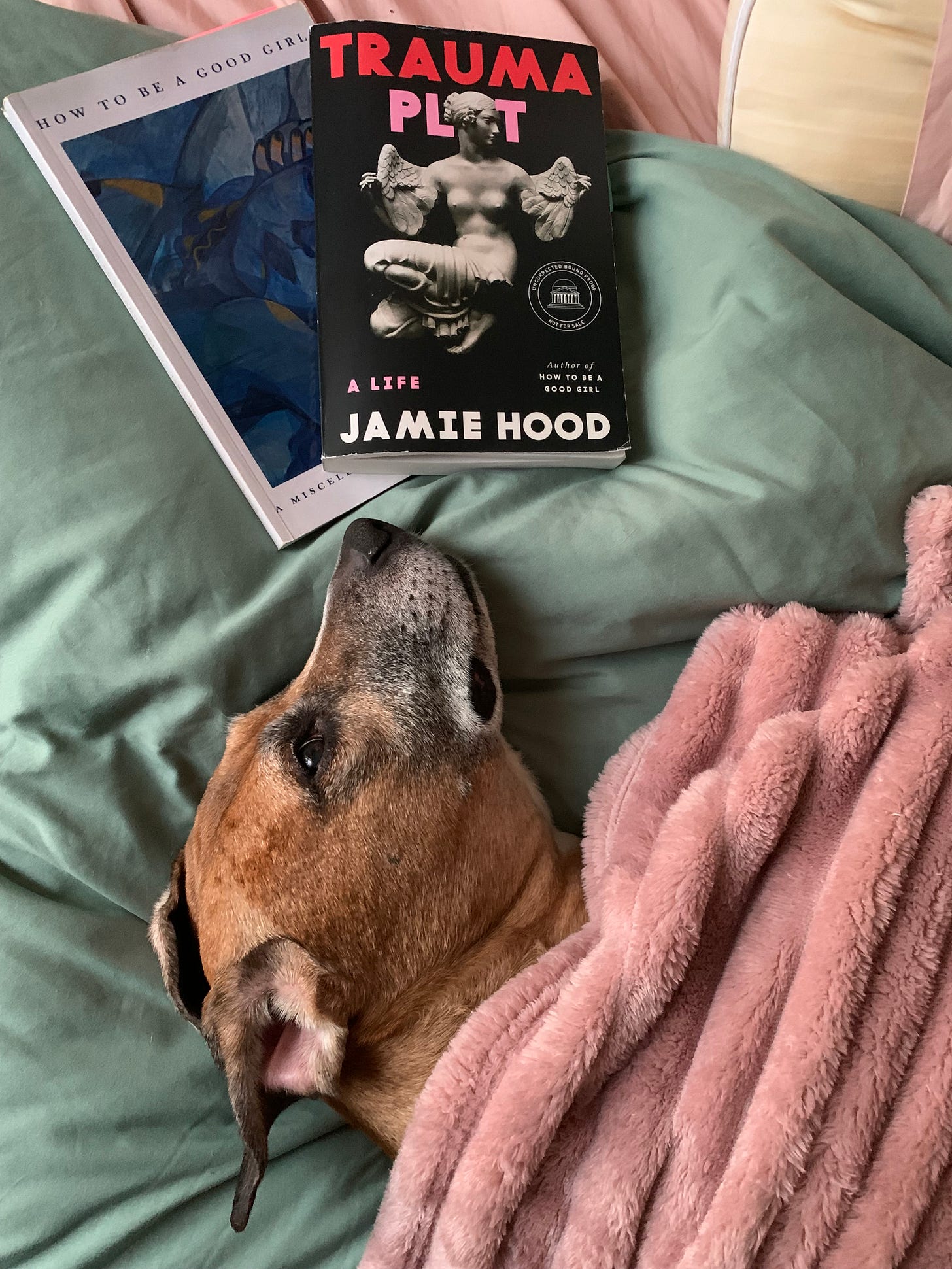
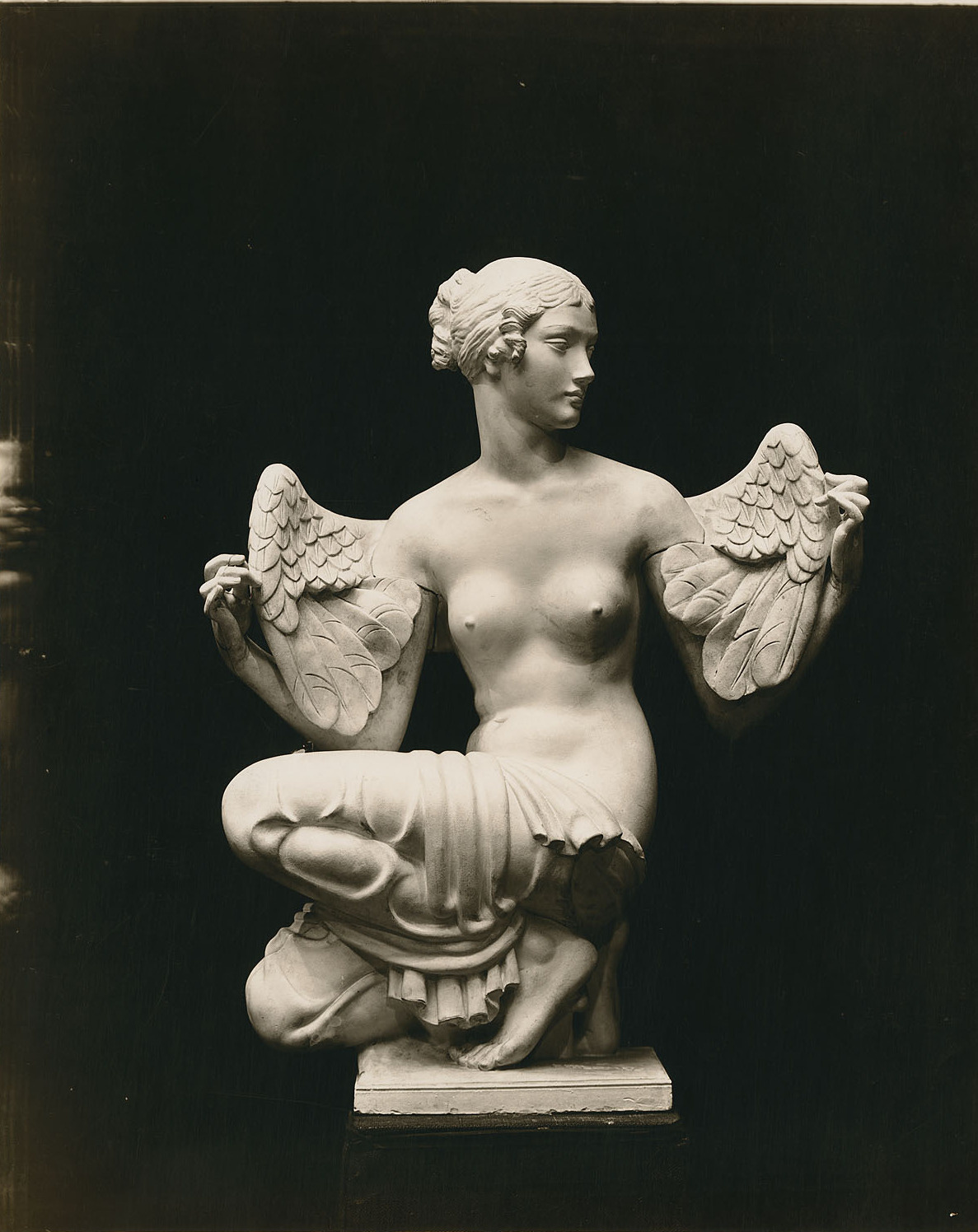
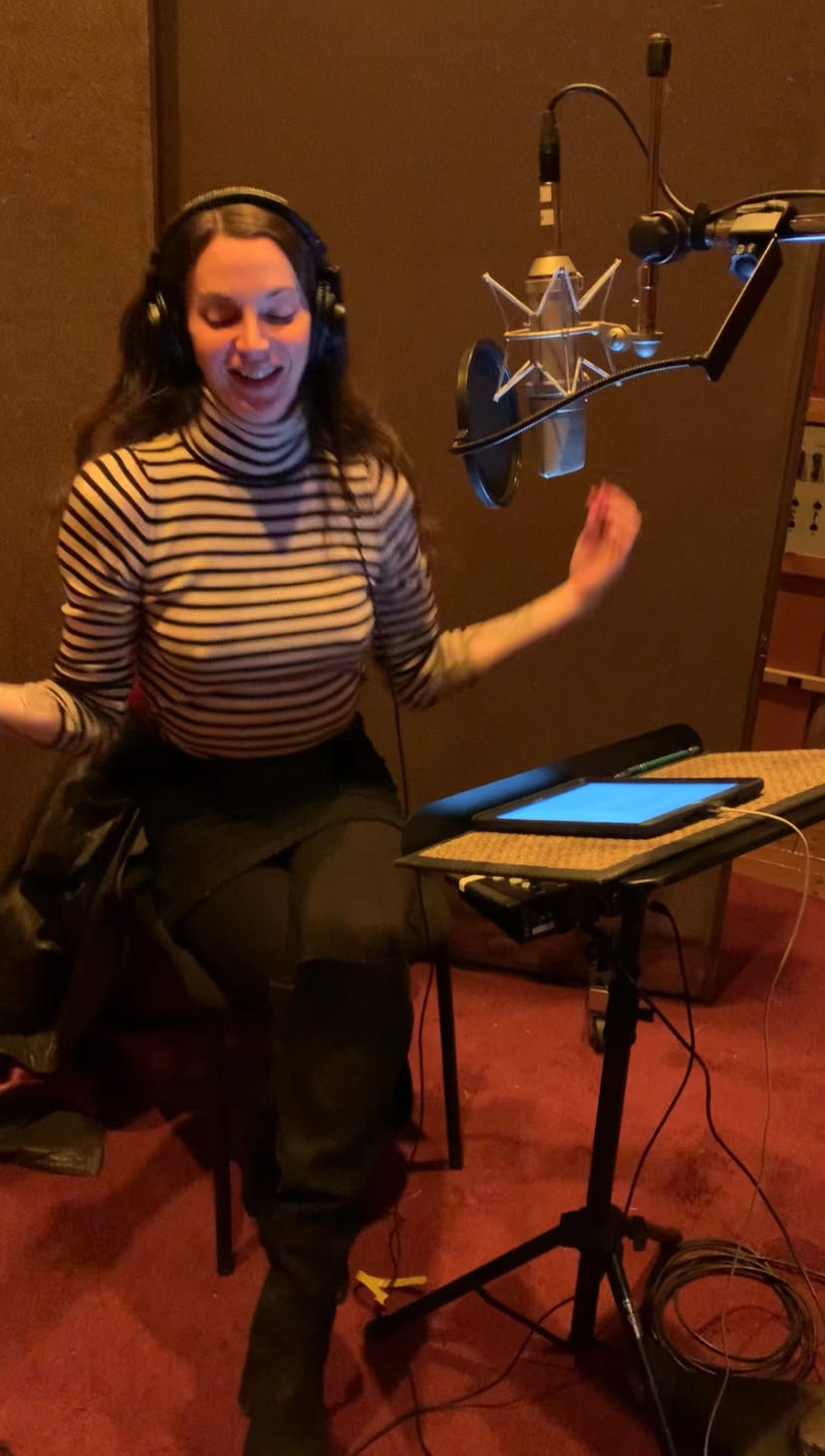
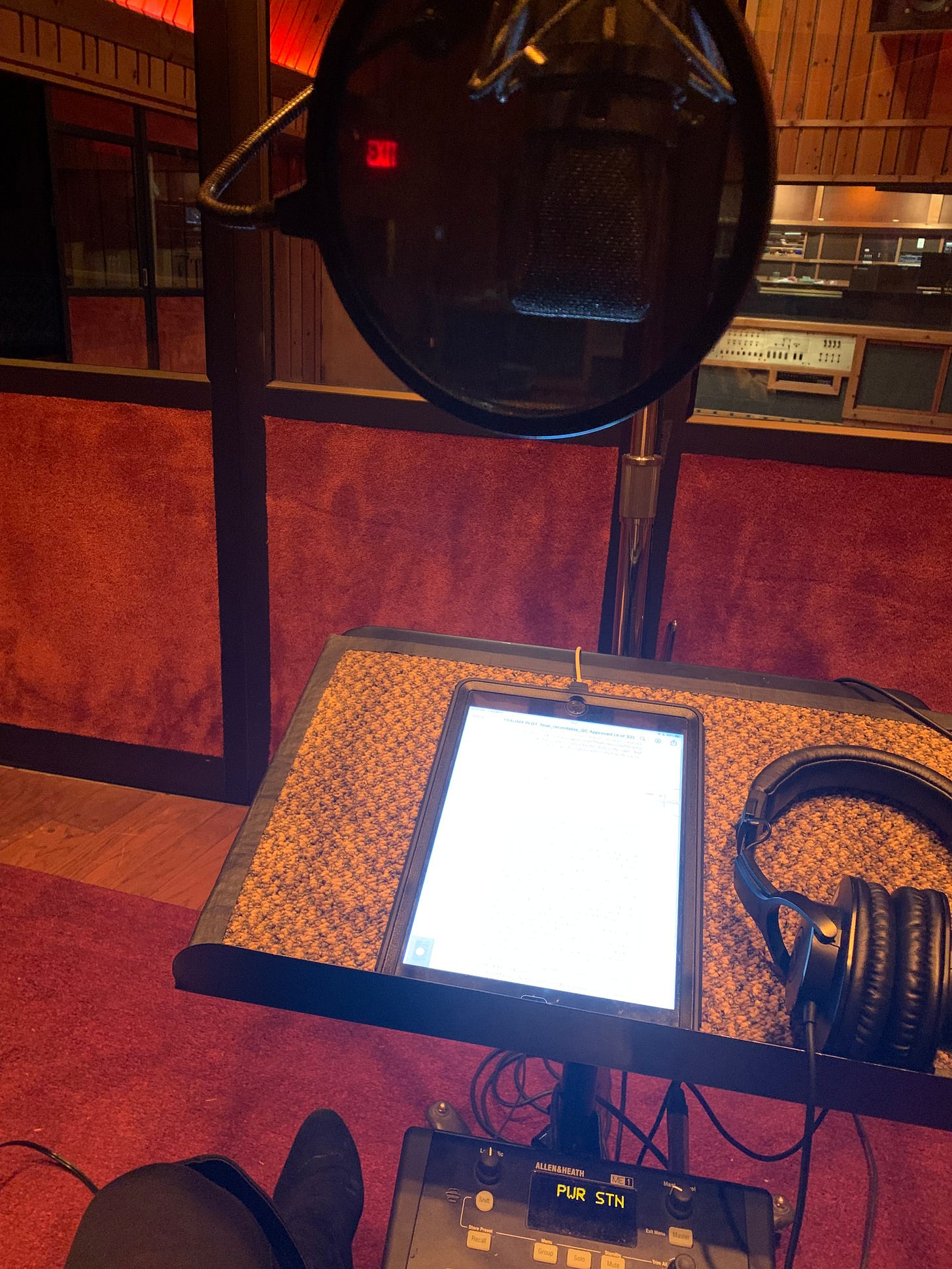
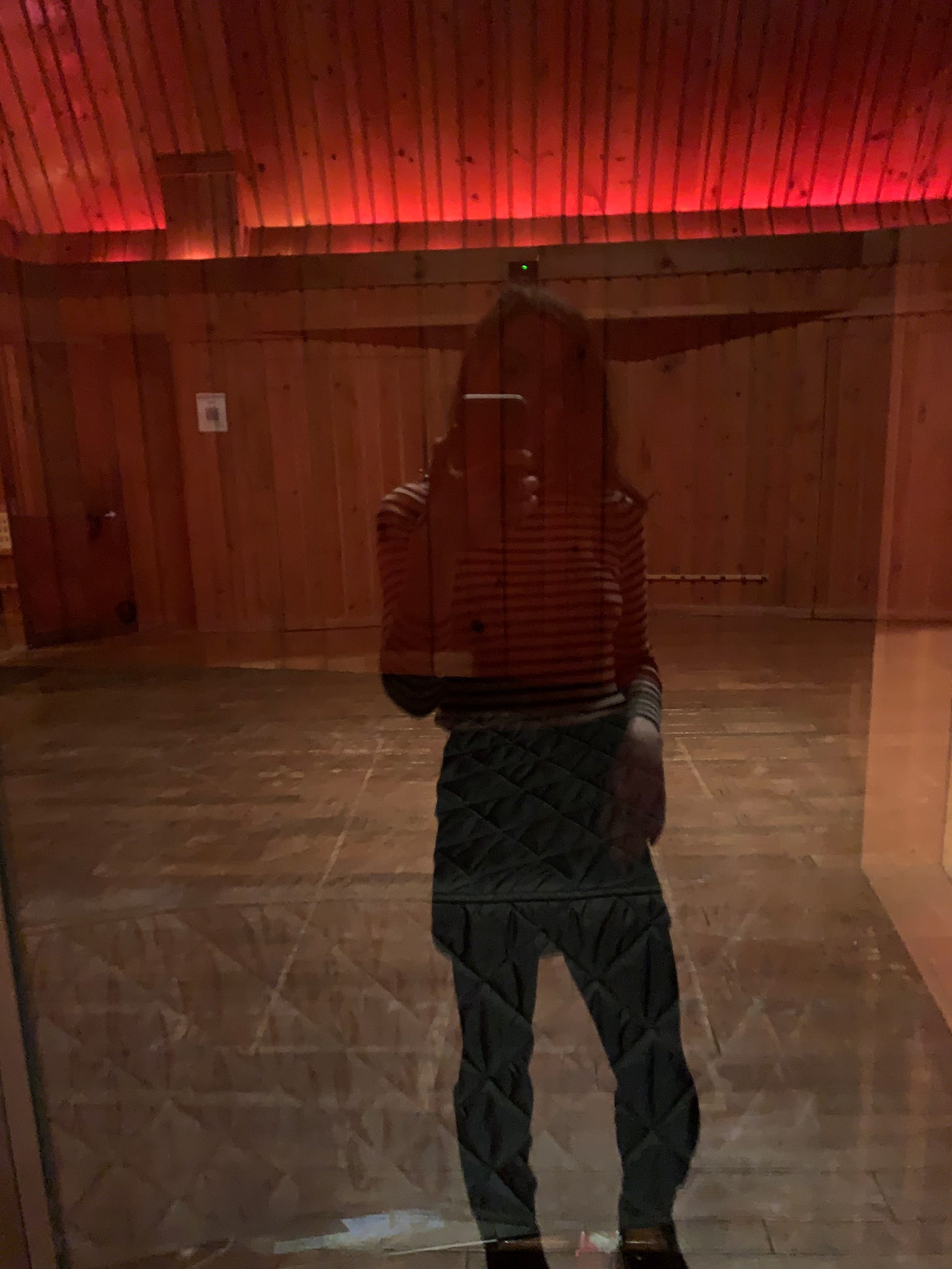
I’m so glad it’s you on the audiobook. You deserve to be heard and I can’t wait to hear your voice!!!
Pre-ordered, can't wait to read. Hope your recovery is going well!